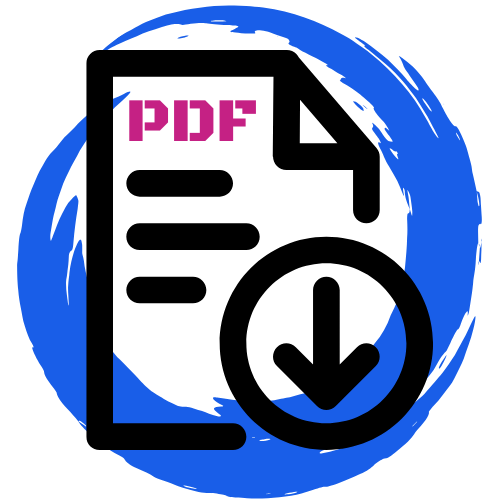I’m a big fan of lists. Shopping lists, to do lists, meal plan lists, hopes and dreams lists, and even lists about lists. When teaching or learning English, lists aren’t the type of fun communicative task that modern language teaching thrives on, but lists get the job done. That’s why I spent time developing this gerunds and infinitives list. Gerunds and infinitives are a big deal in English grammar, coming up anywhere from A2 level onwards. However, it’s at B2 level where gerunds and infinitives become essential. You’ll need to know the rules (and the exceptions) to speak or write well at this level. You also see gerunds and infinitives in transformations exercises if you are doing the B2 Cambridge First exam.

Contents
Gerunds and infinitives rules
We use gerunds (verb+ing):
- After prepositions – I was exhausted after working all day.
- As the subject or object of a sentence – Doing regular exercise is an essential part of a healthy lifestyle.
- After certain verbs (see list) – Leire enjoys listening to music in the car.
We use infinitives with to (to + verb):
- After most adjectives – It’s not always easy to break a bad habit.
- To indicate purpose – Sarah left her job to start a business.
- After certain verbs (see list) – Jimmy promised to do his homework after dinner.
We use the bare infinitive (verb without “to”):
- After modal verbs – She can’t believe her luck!
- After “why” expressions – Why bother if it’s all for nothing?
- After certain verbs (see list) – My parents never let me stay out late.

Gerunds and infinitives list
Here’s a lovely downloadable gerunds and infinitives list. Use it wisely. Share it with your students, use it in combination with games, grammar exercises, communicative tasks or conversation questions like these ones here: Gerunds and Infinitives – Conversation Questions.

Verbs followed by gerund (verb+ing)
anticipate – We didn’t anticipate winning this match.
avoid – Let’s avoid being late.
can’t help – I can’t help counting those calories.
complete – He completed baking the apple pie.
consider – She never considered moving to England.
delay – We delayed moving to the new house until spring.
deny – He will deny stealing that car.
despise – She despises asking for favours.
discuss – We discussed buying a bigger apartment.
dislike – She dislikes cooking and baking.
enjoy – She enjoys reading.
fancy – I fancy having chicken for dinner.
finish – She finished eating before everyone else.
forgive – Can you forgive me for not fixing the car?
imagine – Can you imagine living on the moon?
involve – The new project involves writing many reports.
keep – She keeps coming late!
mention – I never mentioned meeting him.
mind – Will he mind switching rooms?
miss – I miss chatting with you.
postpone – Let’s postpone going out of town.
practise – He practises playing the guitar daily.
recommend – The doctor recommends resting in bed.
report – They reported seeing her leave with a stranger.
resent – He resents doing it all by himself.
resist – I can’t resist liking him.
resume – They resumed talking after the teacher left.
risk – Would you risk losing everything?
suggest – I suggest not taking him too seriously.
tolerate – We can’t tolerate being screamed at.
understand – He couldn’t understand her leaving so suddenly.
worth – It’s worth visiting the cathedral if you have time.
Verbs followed by infinitive (with “to”)
afford – He has no money so he can’t afford to buy a car.
agree – They agreed to give him a try.
appear – He appeared to know everything.
arrange – I have arranged to meet him on Monday.
ask – She asked to see her doctor.
choose – We chose to ignore it.
claim – He claims to be an expert.
decide – She decided not to go to the party.
demand – I demand to see the person in charge!
deserve – He deserves to win the contest.
expect – He expected to be home sooner.
fail – They failed to follow the instructions.
get – It’s not fair that she gets to see him first.
happen – I happened to pass by, so we had a chat.
hesitate – Don’t hesitate to call.
hope – I hope to see you soon.
intend – She didn’t intend to hurt you.
learn – He learned to speak Spanish very quickly.
manage – We managed to finish everything on time.
offer – He offered to go for a walk.
prepare – We were preparing to leave when he arrived.
pretend – She pretended not to hear a word.
promise – She promised to take us with her next time.
refuse – I refuse to cooperate.
seem – It seems to be broken.
swear – He swore to take revenge.
tend – These plants tend to grow slowly.
threaten – He has threatened to hurt us.
wait – The runners were waiting to start.
want – I want to speak with you in private.
wish – I wish to change my address.
would like – I would like to make a comment
Verbs followed by bare infinitive (without “to”)
can – I can help you if you have any problems.
could – When I was young I could play the piano.
had better – You had better finish your homework before it’s too late.
let (+object +verb) – My parents never let me go out late when I was young.
make (+object +verb) – The boss made her employees stay late.
may – I may go to the party, but I’m not sure.
might – They might make money with the new business plan.
must – You must renew your passport before travelling abroad.
should – You should try the new restaurant in the centre.
would rather – I would rather cook at home than eat out.
Verbs followed by both gerund and infinitive with no change in meaning
can’t stand
She can’t stand sitting in the sun when it’s hot.
She can’t stand to sit in the sun when it’s hot.
continue
He continued talking when I asked him to stop.
He continued to talk when I asked him to stop.
prefer
We prefer eating dinner early.
We prefer to eat dinner early.
start
She started working at the company in May.
She started to work at the company in May.
Verbs followed by both gerund and infinitive with different meaning
forget
He forgot lending me the money.
(He has no memory of lending the money.)
He forgot to lend me the money.
(He forgot to complete the intended action.)
remember
I remember locking the storage.
(I have a memory of locking the storage.)
I must remember to lock the storage.
(I must remember to complete the intended action.)
need
The house needs cleaning.
(Passive voice, we don’t know who will clean.)
We need to clean the house.
(Active voice, the subject does the action.)
regret
I regret going to your wedding.
(I went, and now I regret it.)
I regret to tell you I can’t go to your wedding.
(I feel bad that I plan to tell you that I won’t go.)
stop
She stopped chatting.
(She was chatting, and then she stopped.)
She stopped to chat.
(She was doing something, then she stopped and chatted.)
try
They tried using bleach to clean the stain.
(They experimented with bleach as an option.)
They tried to use bleach to clean the stain.
(The attempt to use bleach was a failure.)

